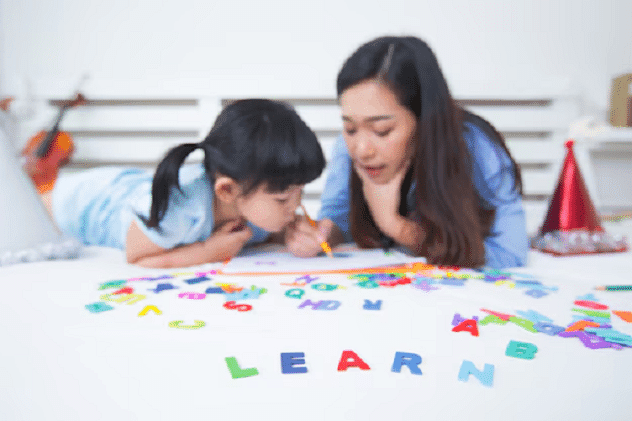Your Ultimate Guide to Early Childhood Education in Singapore: Empowering Your Child’s Future Success

Your ultimate guide to Early Childhood Education in Singapore! Empower your child’s future success with our comprehensive insights.
Brief Overview of the Importance of Early Childhood Education
Early childhood education in Singapore plays a pivotal role in fostering cognitive, social, and emotional growth in children. This stage of development is critical as it sets the foundation for lifelong learning, equipping children with the skills needed for academic and personal success. It shapes their abilities to communicate, socialize, solve problems, and manage their emotions.
Explanation of the Relevance of the Singaporean Context
Singapore’s early childhood education system is unique, shaped by the country’s cultural blend, economic resilience, and strategic global position. These factors influence policies, ensuring that early education remains a priority, with a focus on inclusivity and access for all children, regardless of background.
Understanding the Singaporean Early Childhood Education System
Explanation of the Key Stages in Singapore’s Early Childhood Education
The early childhood education system in Singapore is designed to provide holistic development across three key stages:
- Play-based learning: Children engage in activities that stimulate creativity and social interaction.
- Holistic development: A well-rounded approach that focuses on cognitive, social, emotional, and physical growth.
- Integration of teaching methods: This stage blends structured academic learning with creative play to ensure children are prepared for the next phase of education.
Detailed Discussion on Curriculum
The curriculum in Singapore’s early education system is robust, incorporating a blend of play-based learning with structured academic content. It covers essential areas such as literacy, numeracy, science, and the arts. The goal is not only to foster intellectual abilities but also to encourage emotional intelligence, social responsibility, and creativity. Assessment is integrated into daily activities to track progress and ensure that each child’s individual needs are met.
Insight into the Role of Parents
In Singapore, parents are seen as crucial partners in the educational process. They are encouraged to be actively involved in their child’s development, as their guidance and support can positively influence academic success, social integration, and emotional growth. Parents’ roles in early education include reinforcing what is learned in school, maintaining open communication with educators, and fostering a positive learning environment at home.

Importance of Early Childhood Education
Benefits to Cognitive Development
Early childhood education has significant benefits for cognitive development. It helps in enhancing memory, problem-solving skills, attention, and creativity. These cognitive abilities form the foundation for lifelong learning and adaptability, enabling children to excel academically and in other life challenges.
Social and Emotional Aspect
At this stage, children learn vital social and emotional skills, such as empathy, self-regulation, and effective communication. These abilities not only improve their relationships with others but also contribute to their overall emotional well-being, which is crucial for personal development and future success.
Long-Term Academic Success
Studies have shown that children who attend quality early education programs perform better academically in the long run. Early learning experiences instill strong study habits, critical thinking, and a love for learning, which are vital for success throughout their educational journey.
Setting Foundation for Lifelong Skills
Early childhood education also lays the groundwork for lifelong skills such as critical thinking, communication, and problem-solving. These competencies prepare children to navigate the complexities of the modern world and succeed in both their academic and professional lives.
The uniqueness of Early Childhood Education in Singapore
Overview of the Government’s Emphasis on Early Education
The Singaporean government places a strong emphasis on early childhood education, recognizing its critical importance in a child’s developmental trajectory. The government provides substantial funding and resources to improve the accessibility and quality of preschool programs, ensuring that all children, regardless of background, have the opportunity to thrive.
Discussion on Unique Pedagogical Methods
Singapore’s early childhood education system is known for its innovative teaching methods. These include:
- Play-based learning: Encouraging children to learn through play fosters creativity and problem-solving.
- Inquiry-based learning: Children are encouraged to ask questions, explore, and think critically about the world around them.
- Integrated curriculum: The blend of academics and play ensures a holistic approach to child development, making learning both fun and educational.
Accessibility and Inclusivity Regardless of Socioeconomic Status
The government ensures that quality early childhood education is accessible to children from all socio-economic backgrounds. This inclusivity is a core aspect of Singapore’s education policy, promoting social equity and ensuring that every child, regardless of their family’s financial situation, has access to the best educational opportunities.
Navigating the Early Childhood Education Institutions in Singapore
Overview of the Different Types of Early Childhood Education Institutions
In Singapore, early childhood education institutions vary widely, offering different curricula and approaches. These include:
- Daycare centers: Primarily focused on childcare with some educational elements.
- Preschools: Institutions that provide structured educational programs to prepare children for primary school.
- Montessori schools: A child-centered approach focusing on self-directed learning.
- Kindergartens: Institutions typically serving children aged 5-6, offering structured programs with a focus on academic readiness.
Review of Public and Private Institutions
Both public and private institutions in Singapore provide quality education, but there are some differences:
- Public institutions: Often subsidized by the government, making them more affordable and accessible to a broader segment of the population.
- Private institutions: While they may offer more flexibility in curriculum and teaching methods, they can be more expensive.
Informative Tips on How to Choose the Right Institution
When selecting an early childhood education institution for your child, consider factors such as:
- Accreditation and quality standards
- Program offerings and teaching methods
- Teacher qualifications and experience
- Location and accessibility
- Feedback from other parents and community reviews
Building a Successful Partnership with Early Childhood Educators
Recognizing the Importance of Teacher-Parent Communication
Open communication between parents and teachers is vital for a child’s success. Regular updates, feedback, and discussions help parents stay informed about their child’s progress and ensure that any concerns are addressed promptly.
Tips for Productive Interaction with Teachers
To build a positive relationship with your child’s educators, consider:
- Active listening: Pay attention to the teacher’s observations and insights.
- Engagement: Participate in parent-teacher meetings and school events.
- Support: Provide feedback and work collaboratively with teachers to support your child’s learning.
Suggested Ways to Support Children’s Learning at Home
Parents can reinforce the learning from school by:
- Creating a routine that includes reading and educational activities.
- Engaging in hands-on activities that stimulate creativity and problem-solving.
- Encouraging curiosity and fostering a love for learning.
Early Childhood Education and Future Success
Overview of Academic Advantages
Early childhood education provides a strong foundation for academic success. It promotes critical thinking, communication, and problem-solving skills, all of which are essential for future academic performance.
Detailing Lifelong Skills Learned
The skills learned in early childhood education—such as adaptability, collaboration, and communication—are vital throughout life. They not only benefit academic endeavours but also help in professional environments and personal development.
Emphasis on Critical Thinking and Leadership Development
Focusing on critical thinking and leadership skills during the early years empowers children to make informed decisions, take initiative, and inspire others, setting the stage for future success in both their personal and professional lives.
This comprehensive guide provides an in-depth understanding of early childhood education in Singapore, its benefits, and the steps parents can take to support their children’s development. With the right guidance, children can lay the foundation for a successful future in a world that is constantly evolving.




